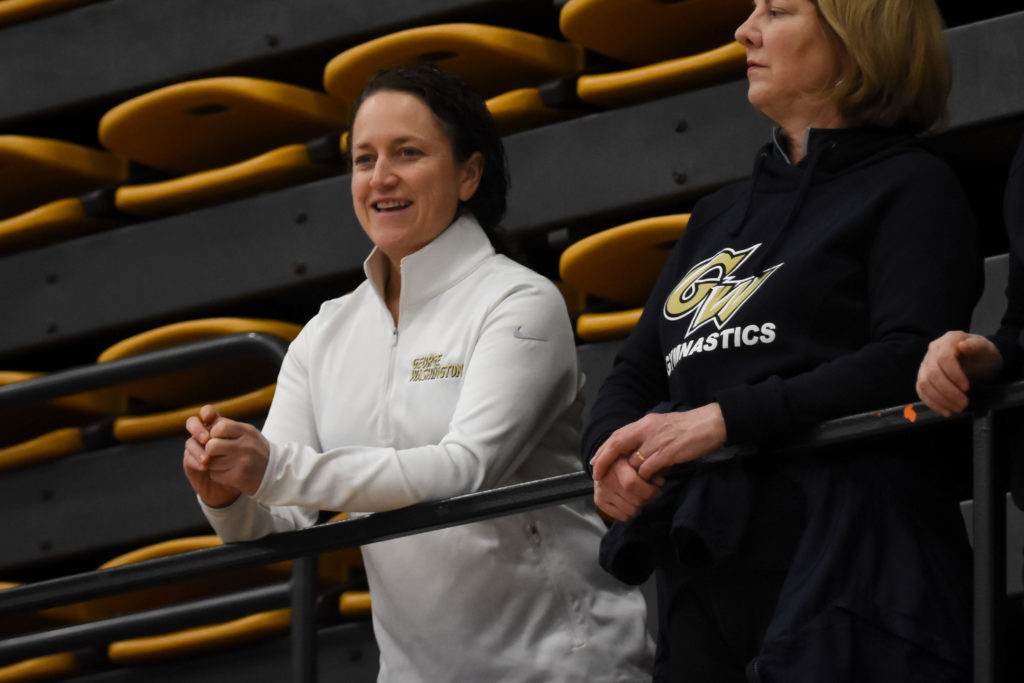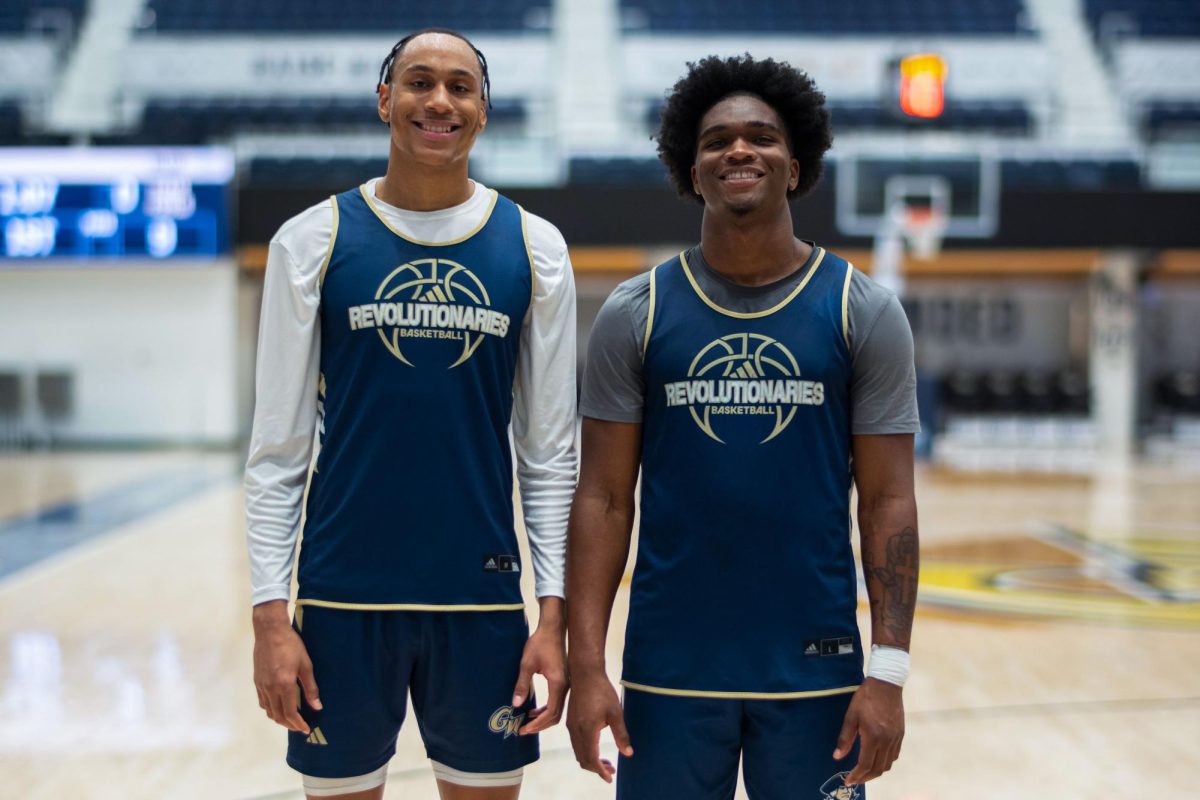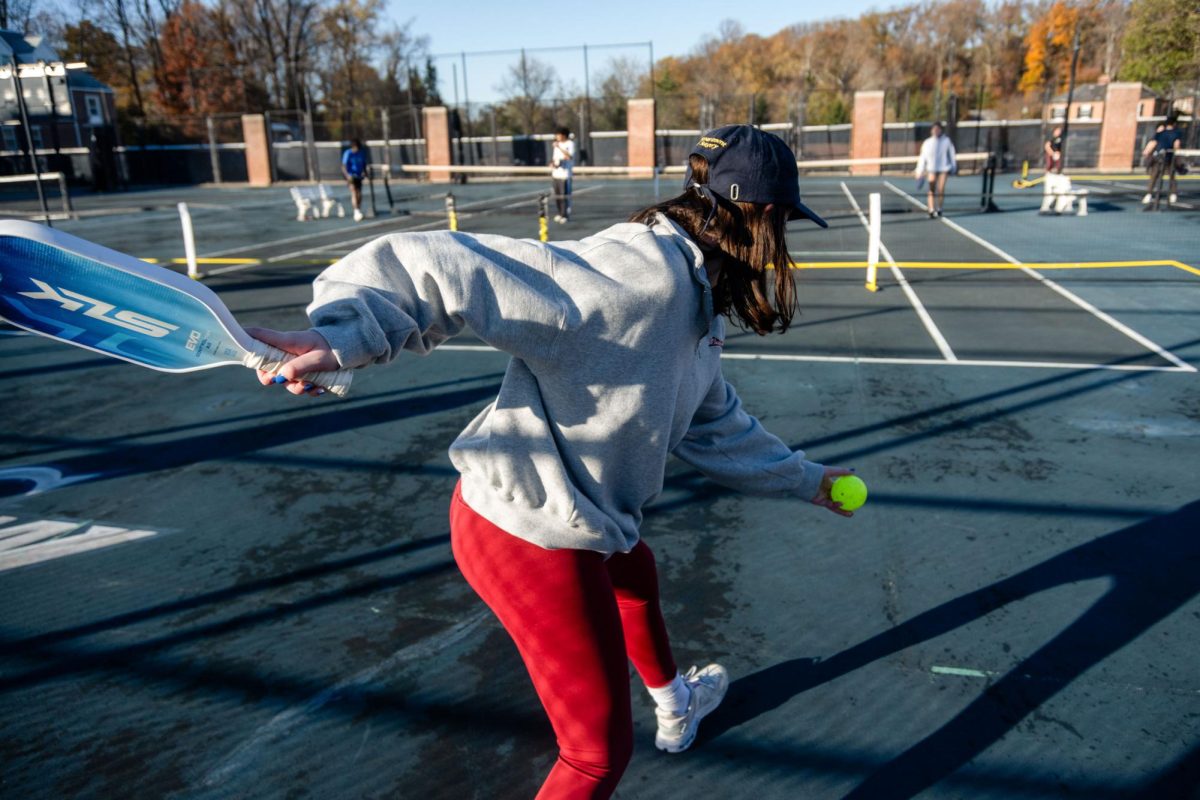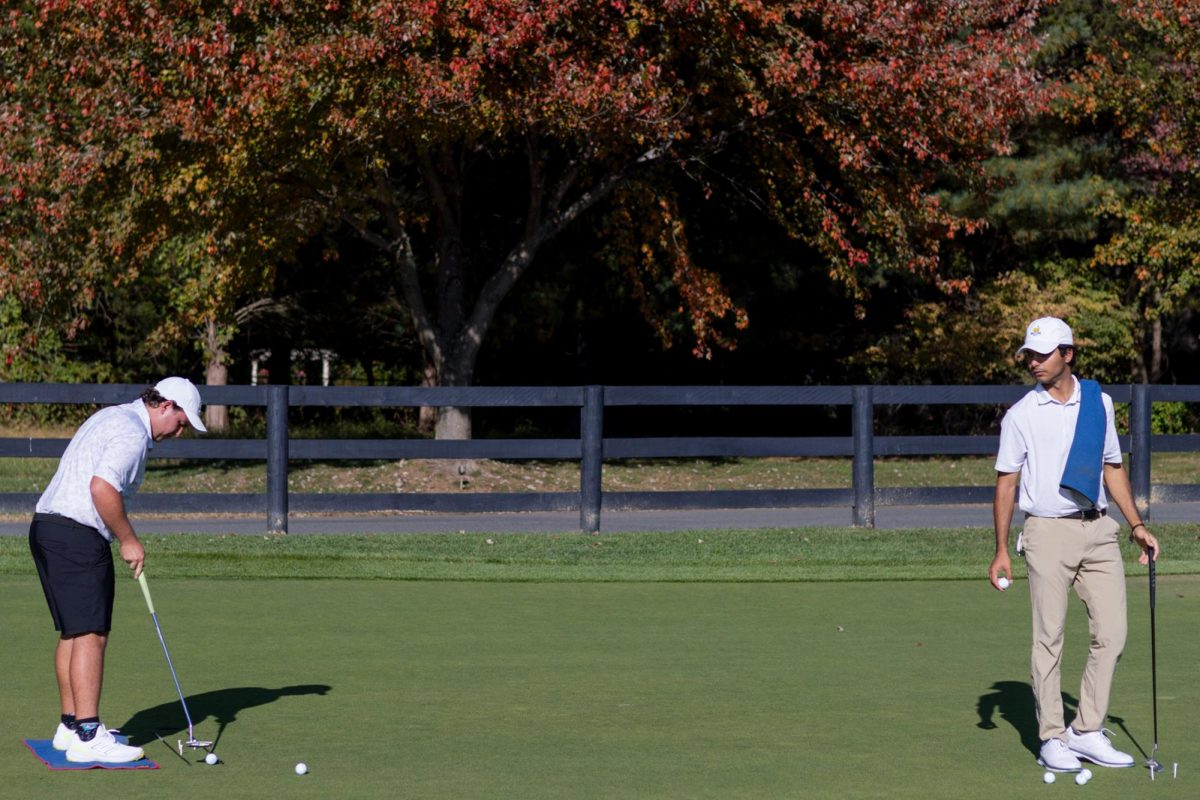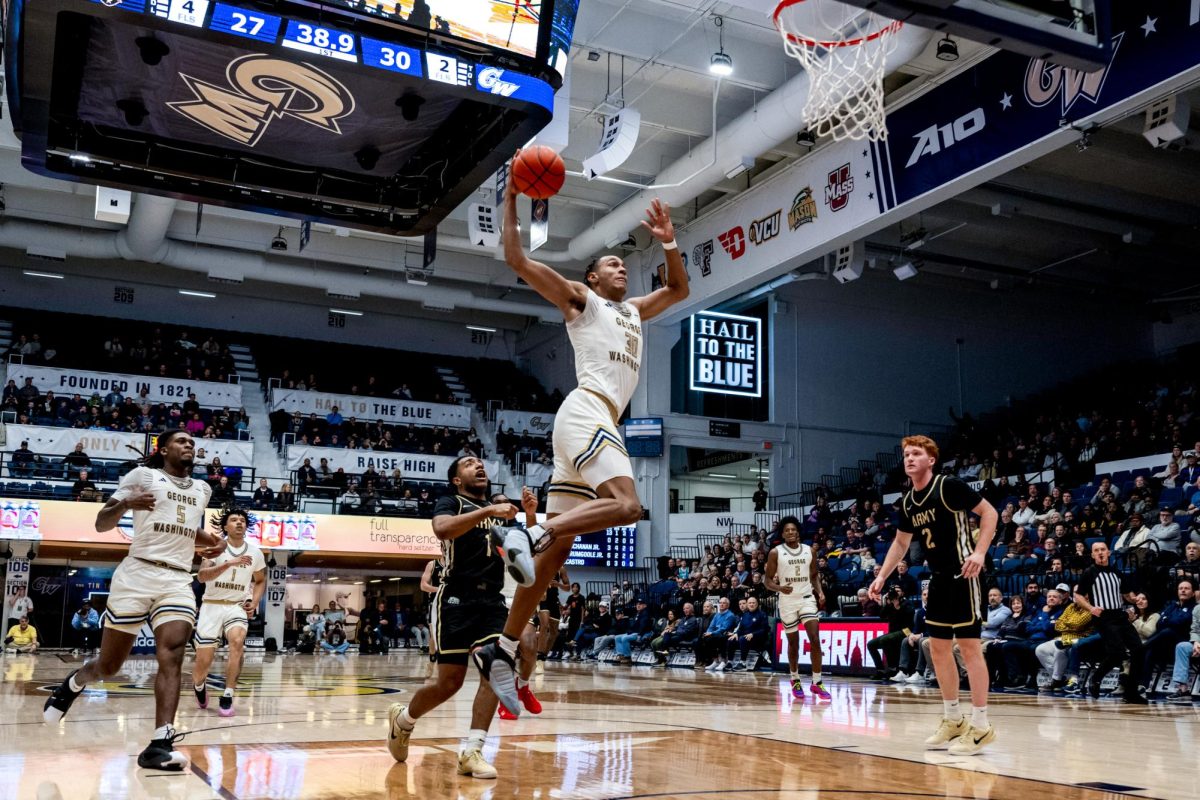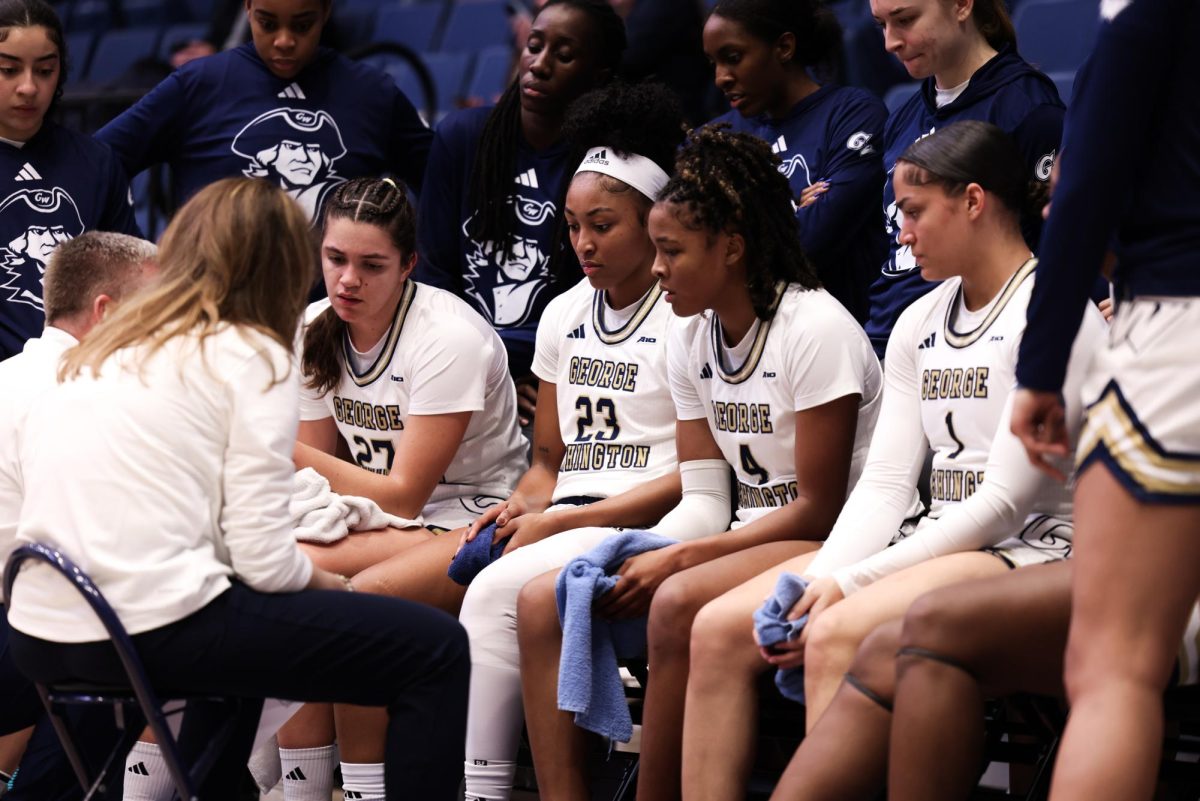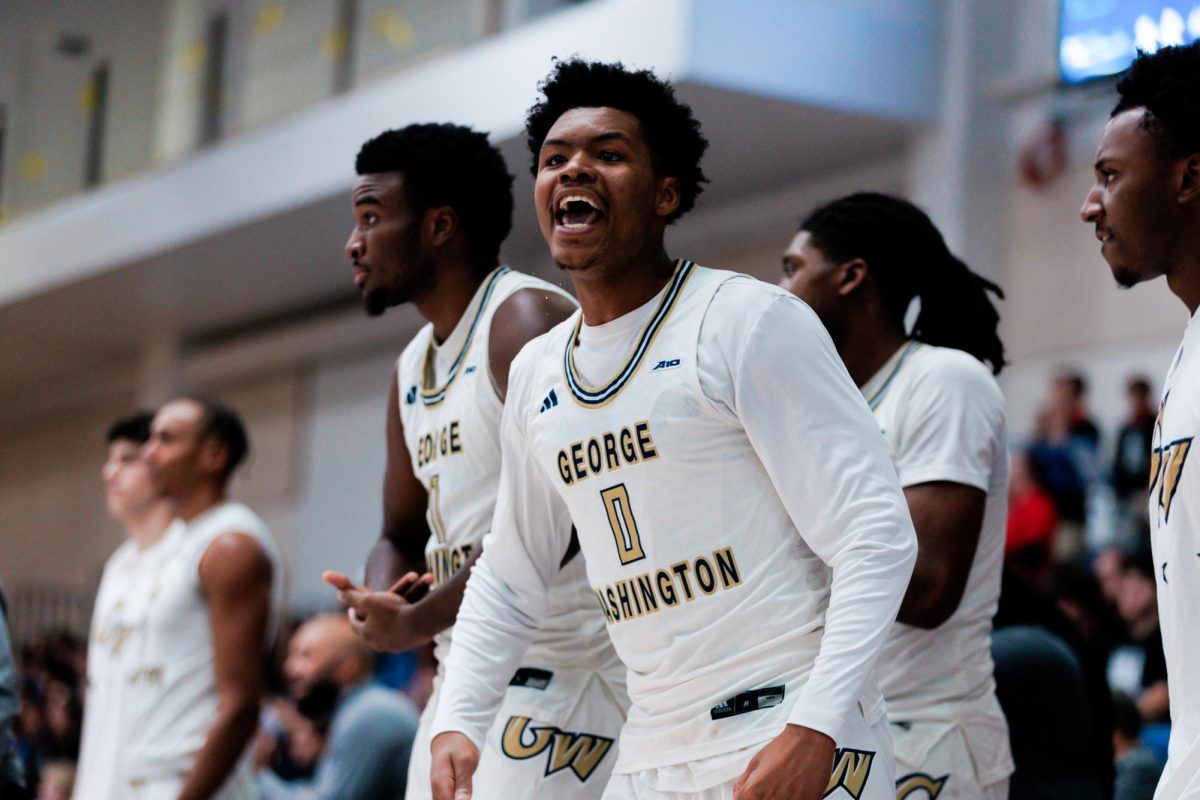The sports that members of the GW community knew before the COVID-19 pandemic are “gone,” Student-Athlete Advisory Council President Lauren Bennett said.
All spring and fall sports have been halted, and the athletic department needed to make cuts of its own – including slashes to seven teams, a pay reduction and scaled back travel budgets. As the pandemic dragged into the fall and social unrest swept the United States, athletic officials began to formulate a return plan for student-athletes and implement a slew of diversity and inclusion initiatives.
“We are having to move forward, and move forward better now, while trying to stay as safe as possible,” said Bennett, who rows for the women’s program.
Some student-athletes have returned to Foggy Bottom and abide by safety protocols, while others have stayed home to train solo or with a nearby club team. The men’s and women’s basketball programs are also gearing up for a delayed season start, which Athletic Director Tanya Vogel said will resemble a slow but steady return to practice and the possibility of playing in front of fans.
Department cuts staff, shrinks budgets
Vogel said she needed to lay off “some” employees and decrease operating and administrative budgets to account for financial loss brought on by the pandemic. The department’s proposed plan to expand the Smith Center and replace the pool with a practice basketball court has been paused along with the suspension of other capital projects.
Vogel took a pay reduction along with other top officials, but the rest of the athletic department did not face pay cuts, she said. She declined to say how much of a pay reduction she took.
Programs’ operating budgets were decreased “25 to 35 percent,” Vogel said. She said the department cut back on teams’ travel budgets and nixed the training table, which provided breakfast to athletes every morning.
The Atlantic 10 regionalized fall sports’ regular season and championship schedules amid the pandemic, and the modifications will remain when fall sports compete in the spring.
“We really approached it that way, knowing that travel makes up a large percentage of what we do,” Vogel said. “That was the area I felt like we could make the biggest impact.”
The department announced July 31 it would eliminate seven programs at the conclusion of the 2020-21 season. Vogel called that Friday a “horribly difficult day for GW athletics,” saying the department had been considering reductions “long before” she arrived at GW.
She added that a 27-program department outsized market basket schools, and the conversation about cutting the teams became “more active” in the last year and a half. Officials said in the summer that the pandemic sped up plans to slim down the department.
“A lot of analysis pointed to us being smaller, to look more like some of the schools that were winning championships across the board,” she said.
Vogel said the University weighed criteria like Division I and Atlantic 10 sponsorship, donation and engagement and how much investment a program would need to compete at a higher level.
In response to the cuts, Bennett said SAAC created Team FORWARD, a committee made up of SAAC members, Vogel and a representative from each of the seven eliminated programs. The committee will act as a space for student-athletes to air their thoughts and learn about mental health resources, options to transfer to another school and resources about converting to a club program, Bennett said.
Vogel, SAAC work toward racial equality
Vogel said conversations about racial equality spawned in March after the killing of Ahmaud Arbery and have prompted officials to create a Diversity, Equity and Inclusion task force and increase focus on diversity in recruiting practices.
She said the Smith Center will also receive updates to honor the Black Lives Matter movement, but the additions have not been revealed yet. Student-athletes are also forming the Black Student-Athlete Alliance, led by head women’s tennis coach Torrie Browning and Administrative Associate Shatara Stokes, to discuss improving inclusivity in the department, she said.
“My commitment to our staff and our students is that we’re going to continue to have conversations and work to make real actionable change,” Vogel said.
Vogel said the Diversity, Equity and Inclusion task force existed for about a year, but it was recently revamped to include events and a film series highlighting the push for racial equity.
Vogel added that she mandated a six-week-long diversity and unconscious bias training – an idea sparked by conversations with women’s basketball assistant coach Ganiyat Adeduntan.
“It was the right place to start,” Vogel said. “We’re also working with some guest speakers that can come in and talk with our coaches about things that are sports-specific areas of the country, i.e. schools, clubs, et cetera, to make sure that we’re casting the widest net.”
Bennett added that SAAC partnered with Athletes United for Social Justice, an offshoot of the Grassroots Project that aims to educate student-athletes and involve them in local social justice initiatives.
Department prepares for winter, spring seasons
Vogel said the department established committees to plan each team’s return to athletics and competition. The groups will help transition athletes and coaches back into practice and set up protocols for programs to follow, she said.
During the first weeks of the return to athletics plan, Vogel said student-athletes’ training hours are limited, and masks and social distancing are required. The plan will then progress to zero-contact training that includes small group workouts before student-athletes can partake in scrimmages or full team practices, Vogel said.
Bennett said she cannot take her mask off until her boat has been pushed off the dock and floated into the Potomac. She added that small practice bubbles are strictly maintained.
Vogel added that not all student-athletes are on campus, but the athletes in Foggy Bottom receive a weekly COVID-19 test and must complete daily health checks to participate in team activities.
She added that the upcoming basketball season, the first athletic events since March, will look differently as a result of the pandemic. With the basketball season set to start Nov. 25, Vogel said the Colonials may begin the season in an empty arena depending on the latest guidance from D.C. health officials.
She added that the Smith Center, which seats 5,000 people, has ample room to accommodate social distancing if D.C. allows fans to attend sporting events.
“Right now, the District does not allow fans,” Vogel said. “It is possible that we’ll play in the Smith Center without fans. Our hope is that we can continue to move in a direction where we can safely have people back inside Smith Center.”


